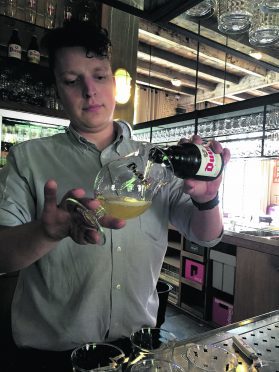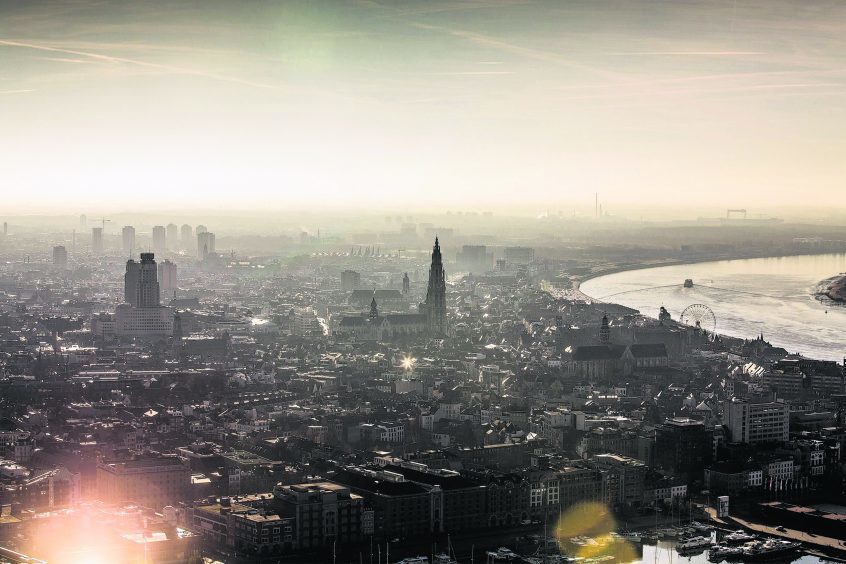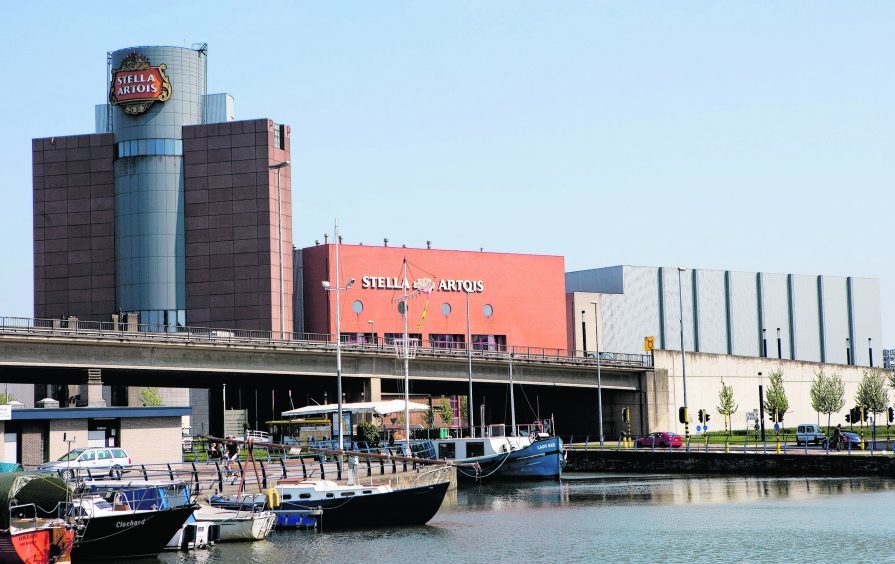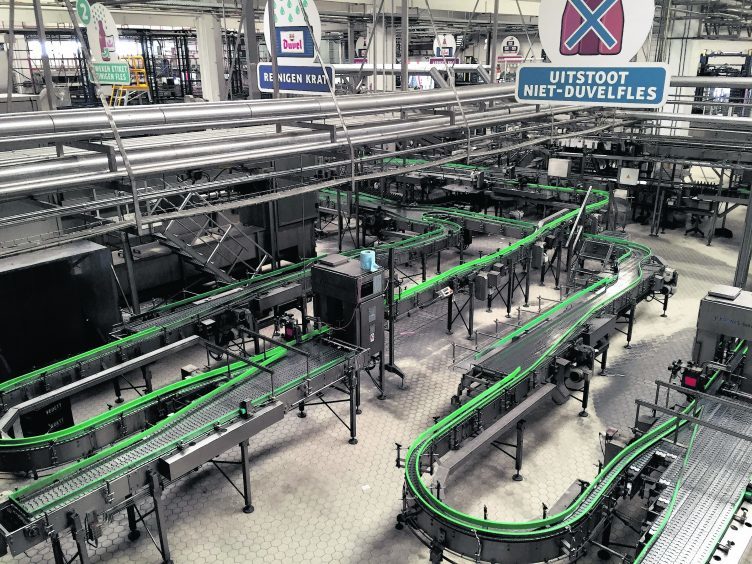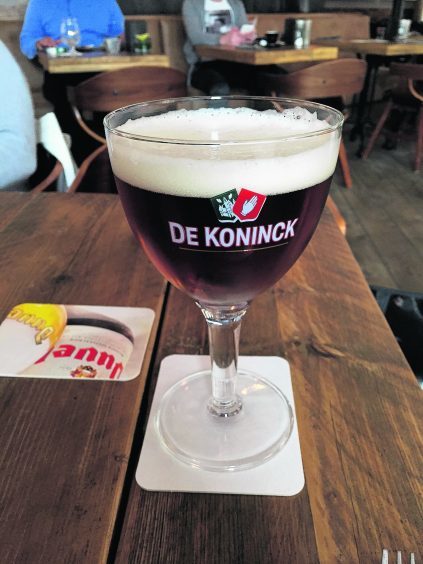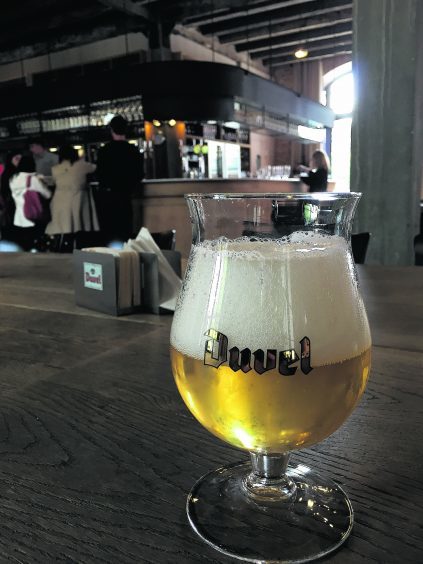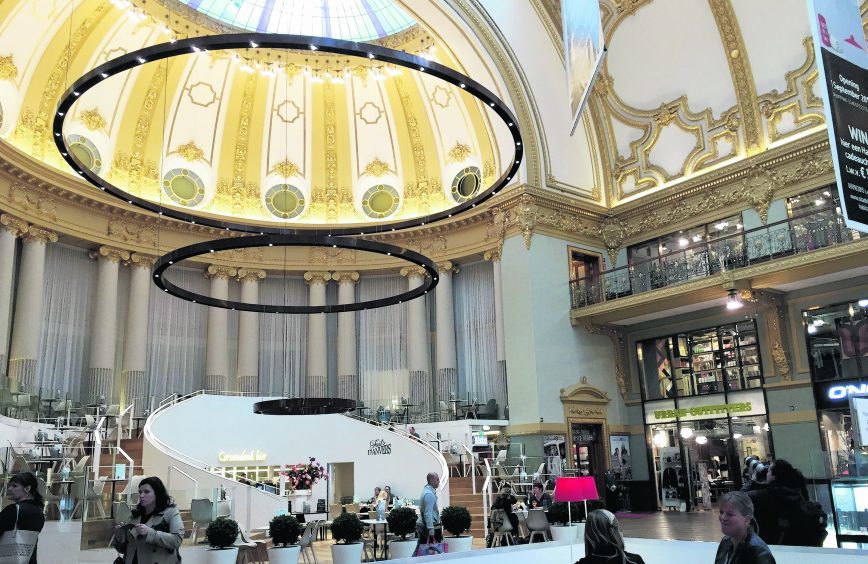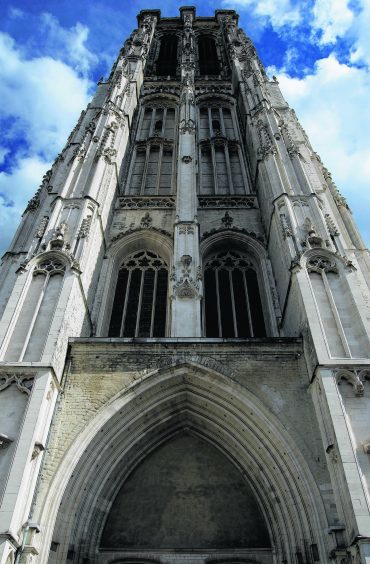I’m about to sample my first beer of the day and it’s not even lunchtime. Drinking alcohol in the morning is usually frowned upon but I have an excuse today, having just completed a tour of Palm Breweries in Belgium.
The country may be famous for its chocolates but it is to be just as enthusiastic about its beer, and a number of breweries offer tourists the chance to see how Belgium’s famous ales are made.
Palm Breweries in Steenhuffel is a short drive from Antwerp and produces a dozen different types of beer, including the US favourite Rodenbach and a red fruit ale called Rosso.
“Brewing beer is chemistry,” the tour guide says as we roam around a production line, before taking a seat at the bar to see the end results.
While arguably Belgium’s most famous beer export, Stella Artois, is considered a strong lager in the UK, most of its rivals in Belgium have an alcohol content above 5%.
After sinking my third variety of Palm beer, I take a taxi to the city of Mechelen to meet local beer expert Sofie Vanrafelghem.
Sofie is a zythologist who has studied the history of beer-making, and holds events to show how different kinds of ales can complement certain foods. She also founded the Women & Beer movement to tackle people’s preconceptions about the drink.
“My whole life revolves around beer,” she says at her Women & Beer workshop.
“Beer is surrounded by lots of prejudices, like beer is fattening. Not true. Beer’s not healthy. Not true.
“Women wouldn’t drink beer with me, so I thought, ‘How can I change that’?”
Sofie claims that regular beer drinkers have a “really good bone structure” and a 25cl glass of Pilsner has fewer than 110 calories.
“Researchers have also discovered people who drink beer live longer,” she adds.
This is music to my ears. However, she is keen to point out that drinking Belgium’s strong beers should be done in moderation.
One of the more unusual places visitors can enjoy a beer is at the top of St Rumbold’s Tower, part of the cathedral in Mechelen.
At 97 metres high, and more than 500 steps to the top, it’s a workout to reach the summit of the UNESCO world heritage site, but the effort is well worth it for the excellent views of Mechelen and northern Belgium.
The company behind one of the country’s most popular beers, Duvel, has also opened its doors to visitors for a behind-the-scenes tour of its brewery in the town of Puurs.
Its most popular beer, with an alcohol strength of 8.5%, is served in a glass called a bolleke.
The tour is popular among men and women, with one hen party clearly enjoying the opportunity to sample some of Duvel’s products. Everyone is well behaved though, and visitors are treated to cheese and beer at the end of the tour.
The latest brewery to open up to the public is De Koninck in Antwerp. Its interactive tour includes a simulated van drive through the city and an amusing bar scene where the brewery’s past owners bicker among themselves as they explain the company’s history.
For those needing to soak up some of that beer, Graanmarkt 13 in Antwerp offers creative dishes from Seppe Nobels, one of the Flemish Kitchen Rebels.
The Rebels are 25 top chefs who are all under the age of 35 and have a passion for Flemish gastronomy and innovative food.
Many of the restaurant’s dishes are made with vegetables grown in its very own garden, while it also grows herbs on a roof terrace.
While Brussels and Bruges are already popular Belgian destinations for tourists, Antwerp, Mechelen and its many breweries are the perfect tonic for any beer lover.
- David Mercer was a guest of Eurostar (eurostar.com; 08432 186 186) which offers up to 10 daily services from London St Pancras International to Brussels, with fares from £29 one-way. Tickets to any other Belgium station start from £34.50 one-way.
